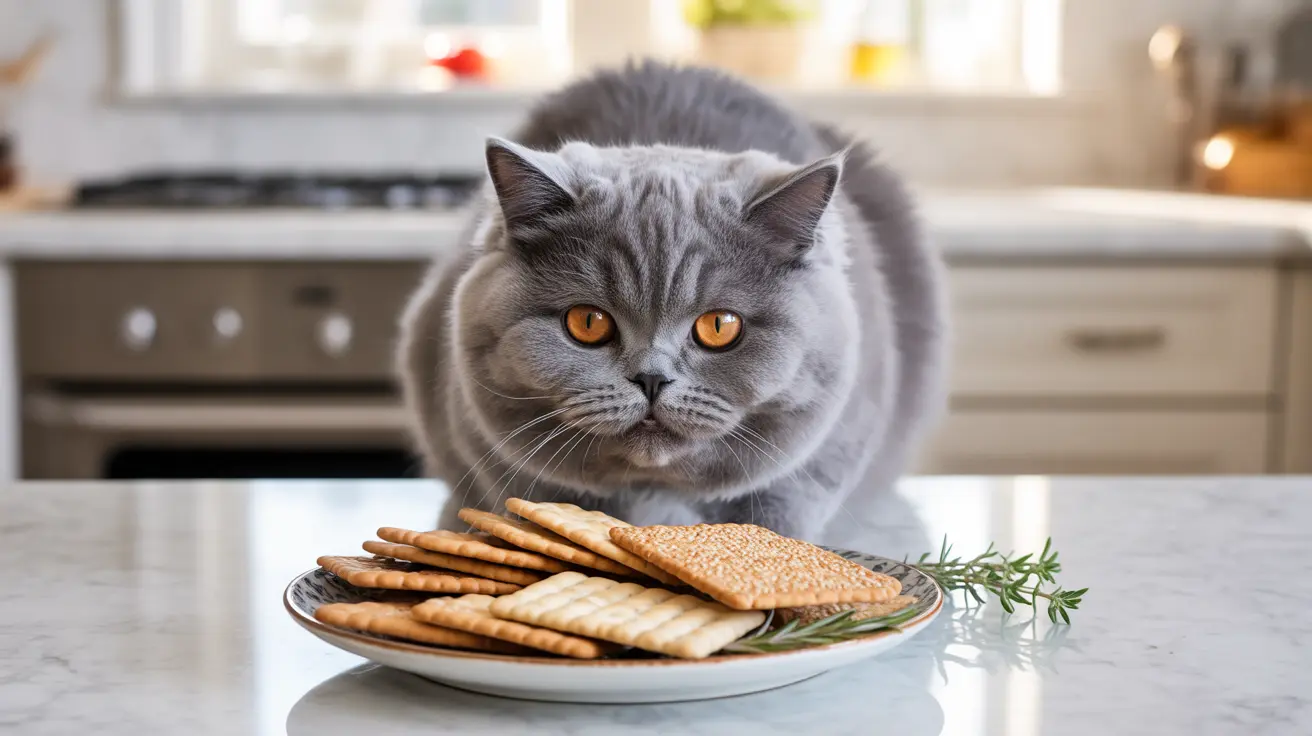If you've ever caught your feline friend eyeing your snack plate, you might have wondered: can cats eat crackers? While these crunchy treats aren't toxic to cats in small amounts, they're far from an ideal snack for your furry companion. Let's explore why crackers should generally stay out of your cat's diet and what you need to know if your pet does consume them.
As obligate carnivores, cats have specific dietary needs that crackers simply can't meet. Understanding the potential risks and nutritional implications of feeding crackers to cats is crucial for responsible pet ownership.
The Nutritional Reality of Crackers for Cats
Crackers are primarily composed of refined flour, salt, and various additives - none of which provide any nutritional benefit to cats. In fact, these ingredients can be problematic for feline health:
- High sodium content that exceeds cats' dietary needs
- Refined carbohydrates that cats aren't equipped to digest properly
- Artificial preservatives and flavor enhancers
- Potential harmful additives like garlic or onion powder
Why Cats Don't Need Crackers
Cats evolved as strict carnivores, meaning their bodies are designed to process protein-rich, meat-based foods. Their digestive systems lack the enzymes needed to properly process large amounts of carbohydrates found in crackers.
Potential Health Risks of Feeding Crackers to Cats
While a single plain cracker likely won't harm your cat, regular consumption can lead to several health issues:
Short-term Risks
- Digestive upset
- Increased thirst
- Vomiting or diarrhea
- Lethargy
Long-term Risks
- Weight gain and obesity
- Diabetes
- Dental issues
- Nutritional deficiencies
What to Do If Your Cat Eats Crackers
If your cat manages to sneak a cracker, don't panic. Monitor them for any unusual symptoms and follow these guidelines:
- Check the ingredients for toxic components
- Monitor water intake
- Watch for signs of digestive distress
- Contact your vet if concerning symptoms develop
Better Alternatives to Crackers for Cats
Instead of crackers, consider these healthy treat options for your cat:
- Commercial cat treats formulated for feline nutrition
- Small pieces of cooked lean meat
- Freeze-dried meat treats
- Veterinarian-approved dental treats
Frequently Asked Questions
Can cats safely eat plain crackers or are they harmful?
While plain crackers aren't immediately harmful, they provide no nutritional value and can cause health issues if consumed regularly. It's best to avoid feeding crackers to cats intentionally.
What health risks do crackers pose to cats if given regularly?
Regular cracker consumption can lead to obesity, diabetes, digestive issues, and potential sodium toxicity. The high carbohydrate content isn't suitable for cats' digestive systems.
Are flavored crackers with onion or garlic powder toxic to cats?
Yes, crackers containing onion or garlic powder are toxic to cats and should be strictly avoided. Even small amounts of these ingredients can cause serious health problems.
How should I respond if my cat eats a large amount of crackers?
Monitor your cat for signs of distress, ensure fresh water is available, and contact your veterinarian if you notice concerning symptoms like vomiting, diarrhea, or lethargy.
What are better treat alternatives to crackers for cats?
Better alternatives include commercial cat treats, small pieces of cooked meat, freeze-dried meat treats, or veterinarian-approved dental treats specifically formulated for cats.
Conclusion
While cats might show interest in crackers, these human snacks have no place in a healthy feline diet. Instead of sharing crackers with your cat, stick to species-appropriate treats that support their nutritional needs and overall health. If you're ever uncertain about what to feed your cat, consult with your veterinarian for personalized advice.






